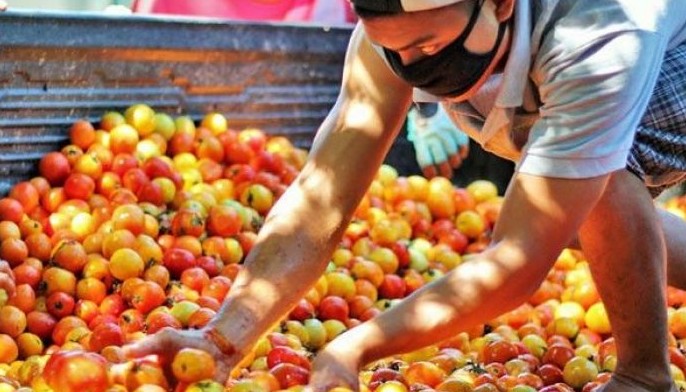MANILA, Philippines — The US and the Philippines agreed Saturday to continue discussions on ensuring food security for the Southeast Asian country amid global supply disruptions caused by climate change, the COVID-19 pandemic and Russia’s invasion of Ukraine.
“We want to work more closely with the Philippines both to alleviate any short-term food insecurity, but especially to help continue to build food production capacity here in the Philippines for the long-term,” US State Secretary Antony Blinken told a virtual news conference after a meeting with Philippines’ Foreign Affairs Secretary Enrique Manalo.
Manalo said he and Blinken agreed to keep lines open on how both countries can cooperate so Filipino farmers can have access to fertilizers at lower prices.
“We agree to continue our discussions on how we can cooperate in accessing fertilizers at lower prices for our farmers, as well as technology that will allow us to modernize and make agriculture in the Philippines more efficient, cost-effective and climate smart,” Manalo said.
In his first State of the Nation Address, President Ferdinand Marcos Jr. — who currently handles the agriculture portfolio in the absence of a department chief — laid out in broad strokes a plan to improve food security in the country, including assistance to farmers in the short-term and modernizing agriculture in the long-term.
September meeting
Manalo also announced that it is possible for Marcos to meet with his US counterpart, Joe Biden, at the sidelines of the UN General Assembly in New York in September and for the Philippine president to visit Washington, D.C. in response to the American chief executive’s invitation.
Marcos, his mother Imelda and the estate of his father and namesake are facing a contempt judgment in the US for sharing their wealth with the Philippine government which should have been the source of payment of damages to Martial Law victims.
But US Deputy Secretary of State Wendy Sherman said in June that Marcos would be “welcome” to their country due to his diplomatic immunity. — Xave Gregorio


